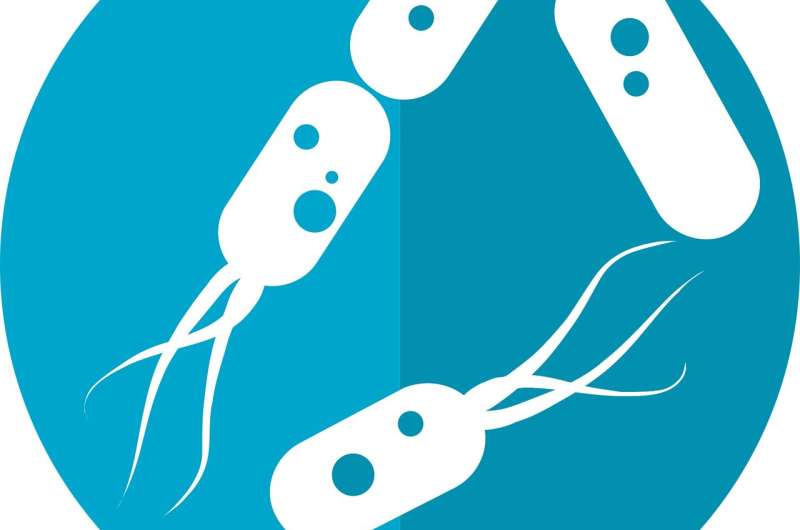
Credit: Pixabay/CC0 Public Domain
Our body is populated by billions of microorganisms, whose microbes are specific to each individual. Through experimentation, scientists have identified some factors that explain intestinal variations: diet, living conditions, physical exercise and maternal lineage.
Scientists at the University of California, San Diego, have discovered another factor that affects the composition of the gut microbiota: time of day. In fact, scientists have found that time of day is such an important factor that they are asking the National Institutes of Health (NIH) to require researchers to report it in their papers.
In a new book published in Metabolism of natureScientists report that daily fluctuations in the gut alter the microbiome so dramatically that different bacteria populate it in the morning and evening. That means a researcher analyzing a stool sample taken at breakfast will come to dramatically different conclusions than a researcher analyzing a stool sample taken just before dinner. UC San Diego scientists suggest that this variability prevents gut microbiome researchers from being able to replicate others’ experiments.
“The unexplained variability and lack of reproducibility may be due to the fact that the microbiome oscillates throughout the day, with different populations of microbes dominating at different times,” said Amir Zarrinpar, MD, PhD, a gastroenterologist and associate professor of medicine at UC San Diego School of Medicine and senior author of the study. “We found that the timing of a sample can have a significant impact on which microbes are present and what conclusions scientists draw about the disease they are studying.”
Scientists conduct experiments for many reasons. The traditional reason is to answer a specific question, but another reason is to make a discovery or arrive at a scientific truth that others can replicate with their own experiments. In gut microbiome research, scientists collect stool samples to find out which microorganisms are present and in what quantities. They then link these changes to disease processes.
For this study, the team compared computer analyses of previously published studies, including their own. They found that changes in the microbiome were so pronounced over time that they affected the results as much as diet.
“We found that just four hours after a mouse eats breakfast, almost 80 percent of its microbiome is different,” Zarrinpar said. In analyzing the findings from the studies, Zarrinpar and his team found that the results and conclusions depended heavily on when the researchers collected the samples.
Zarrinpar was inspired to conduct the study by a conversation he had with a colleague. “He told me that a postdoc in his lab had taken over an experiment that someone else had started. The postdoc couldn’t reproduce the previous trainee’s results. This led him to question his predecessor’s research,” Zarrinpar said.
“The postdoc then realized that one bacteria that was incredibly prevalent in his findings was one that appeared late in the day. He went back to his lab and found that the previous intern liked to take samples in the morning, while he himself took samples before going home. That’s why he couldn’t replicate the first intern’s findings.”
The ability to reproduce the results of a previous experiment – reproducibility – is a key element in determining whether a result reliably represents new knowledge about reality or is simply an artifact of the experiment. Microbiome research is currently in a reproducibility crisis, in part because of the interdisciplinary nature of the field, the complex relationship between microorganisms and their hosts, and the difficulty of controlling so many variables.
Zarrinpar believes his team’s latest findings on the importance of timing can help solve the reproducibility crisis in microbiome research. “If we’re ever going to be able to communicate with each other about our science and what we think about the situation effectively, we need to understand that if you get different results than I do, it could be because of when we collected the samples or not. Right now, we can’t even tell that.”
Scientists from other disciplines, such as circadian biologists, have also lobbied the NIH to be stricter about reporting when samples are taken, Zarrinpar says. Zarrinpar hopes that the publication of this paper will convince more scientists—and the people who fund and publish their research—of the importance of timing and its potential impact on other fields, such as metabolism research.
Zarrinpar’s next steps will be to advocate for standardized guidelines that ensure consistency in the timing and methodology of microbiome sample collection. “This will likely involve working with other researchers, funding agencies, and journal editors to promote the adoption of such standards,” he said. His next paper focuses on understanding the impact of timing in humans, a much harder variable to control.
More information:
Metabolism of nature (2024). DOI: 10.1038/s42255-024-01064-1 , www.nature.com/articles/s42255-024-01064-1
Provided by University of California – San Diego
Quote:New findings could solve reproducibility crisis in microbiome research (2024, July 1) retrieved July 2, 2024 from https://medicalxpress.com/news/2024-06-replicability-crisis-microbiome.html
This document is subject to copyright. Apart from any fair dealing for the purpose of private study or research, no part may be reproduced without written permission. The content is provided for informational purposes only.